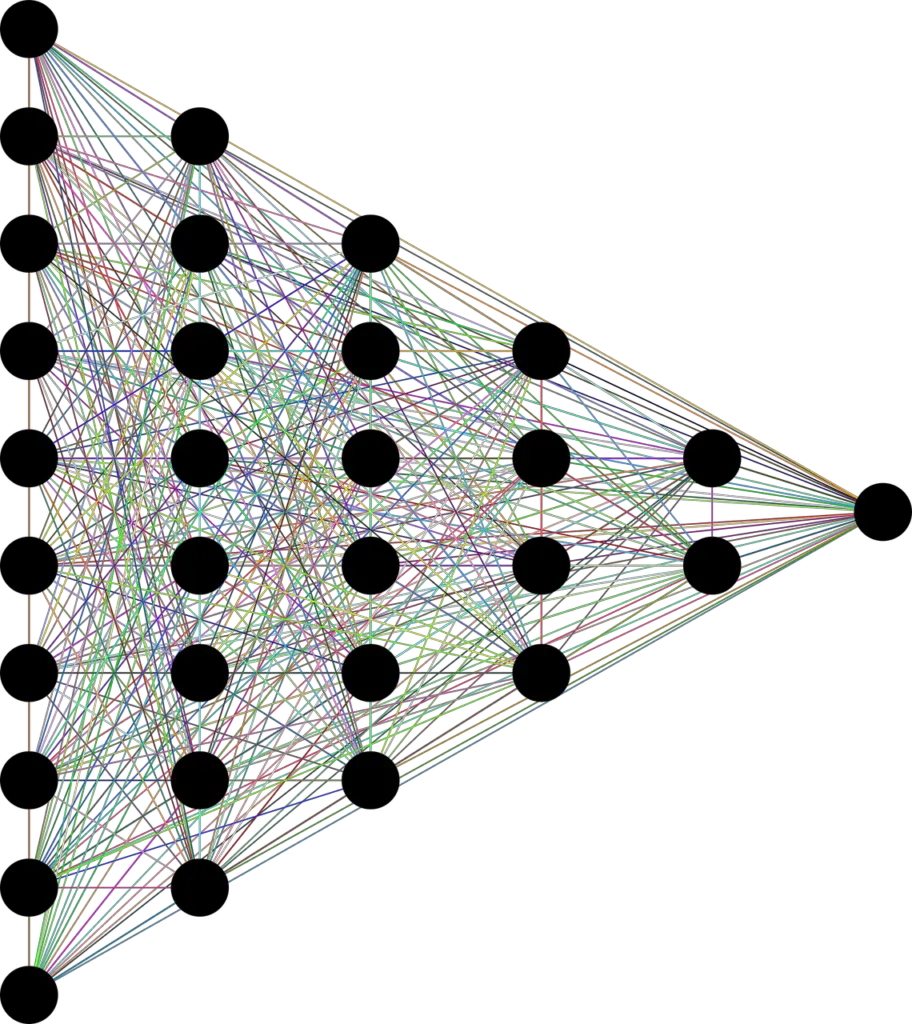In the fast-paced and ever-evolving world of technology, it’s no surprise that some of the greatest minds clash when it comes to the potential risks and rewards of artificial intelligence (AI). One notable discussion took place between Larry Page, co-founder of Google, and Elon Musk at a party back in 2015. Little did they know that their debate would foreshadow the ongoing global debate surrounding AI. While some, like Musk and Sam Altman, co-founder of OpenAI, saw potential dangers, Page envisioned a digital utopia. This clash of perspectives led to the creation of OpenAI and its remarkable ChatGPT chatbot, which has changed the tech landscape and is now valued at an astounding $80 billion. Amidst the tensions and egos of individuals and organizations in the AI realm, Larry Page became captivated by the work of Geoffrey Hinton and his students. Their groundbreaking research paper in 2012 showcased the impressive capabilities of AI, catching the attention of Google and igniting Page’s drive to bring them on board. But before we delve into the details of this enticing journey, let’s explore the foundations upon which the future of AI was built.
Larry Page’s Interest in AI
The debate with Elon Musk in 2015
In 2015, Larry Page, the co-founder of Google, found himself in a heated debate with Elon Musk about the risks associated with artificial intelligence (AI). The debate took place at a party and served as a precursor to the ongoing discussion about whether AI will ultimately benefit humanity or become a potential threat. Both Page and Musk presented contrasting views on the matter, with Page expressing his optimistic vision of a future where AI would bring about tremendous advancements and Musk voicing concerns about the potential dangers that could arise from unregulated AI development.
The ongoing debate about AI’s impact on humanity
Larry Page’s debate with Elon Musk not only sparked conversations among the tech-savvy individuals present at the party but also instigated an ongoing debate in the AI community and beyond. The discussion revolves around the potential consequences of AI technology and its impact on humanity. While some believe that AI has the potential to solve some of the world’s most pressing problems and enhance our lives in unimaginable ways, others raise concerns about its potential to disrupt industries, displace jobs, and even pose existential threats.
OpenAI and the Rise of ChatGPT
Musk and Altman’s response to Page’s vision
In response to Larry Page’s vision of a digital utopia powered by AI, Elon Musk, alongside entrepreneur Sam Altman, founded OpenAI. OpenAI is a research organization committed to ensuring that artificial general intelligence (AGI) benefits everyone. Musk and Altman saw the need to address the potential risks associated with AI and realized that collaboration and careful regulation were necessary to realize its full potential without compromising humanity’s well-being.
The transformative impact of ChatGPT
One of OpenAI’s most remarkable achievements has been the development of ChatGPT, a state-of-the-art AI chatbot. ChatGPT has significantly transformed the tech industry, making natural language processing more accessible and contributing to advancements in various applications, such as customer service, content generation, and language translation. Its remarkable ability to understand and respond to human queries has made it a crucial tool in many sectors.
OpenAI’s valuation of over $80 billion
The success of OpenAI and its groundbreaking advancements in AI technology have not gone unnoticed. Companies and investors recognize the immense potential in this field, leading to OpenAI achieving a staggering valuation of over $80 billion. This valuation is a testament to the revolutionary impact that OpenAI, under the leadership of Elon Musk and Sam Altman, has had on the AI landscape and the level of confidence that investors have placed in its future.

This image is property of static01.nyt.com.
Tensions and Egos in the AI Community
The players involved in the AI industry
The AI industry is home to several influential individuals and organizations, each with their own perspectives and ambitions. Figures such as Elon Musk, Larry Page, Mark Zuckerberg, Peter Thiel, Satya Nadella, and Sam Altman have all contributed significantly to the growth and development of AI. Their respective visions, interests, and egos, however, have occasionally created tensions and sparked debates within the AI community.
Mistrust and differences of opinion
The complex nature of AI and its potential implications have given rise to mistrust and differing opinions among industry players. Some individuals and organizations prioritize safety and ethical considerations, advocating for careful regulation and responsible development of AI. On the other hand, there are those who believe in a more open and aggressive approach, emphasizing the importance of pushing the boundaries of AI capabilities. These differing viewpoints have led to clashes and disagreements within the AI community, highlighting the challenges that arise when balancing progress and ethics.
DeepMind’s Mission and Funding
Demis Hassabis and Peter Thiel’s involvement
DeepMind, a company founded by Demis Hassabis, has been at the forefront of AI research and development since its establishment. With the financial backing of technology investor and entrepreneur Peter Thiel, DeepMind set out on a mission to build AI systems that protect and benefit humanity. Demis Hassabis’s background in both neuroscience and computer science provided him with a unique perspective, allowing DeepMind to explore the frontiers of AI technology and its potential applications.
Building AI systems to protect the world
DeepMind’s primary objective is to develop AI systems that can mitigate potential downsides and safeguard the interests of humanity. By focusing on building AI technology that aligns with human values and priorities, DeepMind aims to ensure that AI becomes a force for good rather than a threat. Through comprehensive research and development, DeepMind seeks to address the risks and ethical concerns associated with AI while unlocking its full potential to create positive societal impact.

This image is property of static01.nyt.com.
Geoffrey Hinton’s Breakthrough
Publication of the influential research paper in 2012
In 2012, Geoffrey Hinton, a renowned computer scientist and AI pioneer, and his students published a groundbreaking research paper that revolutionized the field. The paper introduced deep neural networks and demonstrated their remarkable capabilities in various applications, such as image recognition and natural language processing. Hinton’s breakthrough marked a significant milestone in AI research and paved the way for numerous advancements in the years that followed.
Showcasing the capabilities of AI
Geoffrey Hinton’s research paper showcased the tremendous potential of AI, enabling machines to learn from vast datasets and solve complex problems with unprecedented accuracy. This new approach, known as deep learning, captivated the AI community and galvanized technological advancements in areas such as computer vision, speech recognition, and autonomous vehicles. Hinton’s breakthrough became the foundation for many subsequent developments and inspired a new wave of AI research and applications.
Baidu’s Offer to Hinton
The $12 million offer declined by Hinton and his students
Following the publication of their influential research paper, Geoffrey Hinton and his students found themselves in high demand. Baidu, a leading Chinese technology company, recognized the value of Hinton’s expertise and offered him and his students a staggering $12 million to join their ranks. However, Hinton and his team declined the lucrative offer, choosing instead to remain independent and pursue their research with the freedom and autonomy they desired.

This image is property of pixabay.com.
Google’s Desire to Bring Hinton Onboard
Larry Page’s keen interest in Hinton’s research
Larry Page, known for his curiosity and appetite for groundbreaking technologies, took a keen interest in Geoffrey Hinton’s research. Recognizing the transformative potential and long-term implications, Page saw the opportunity to bring Hinton onboard at Google. By incorporating Hinton’s expertise and insights into their AI initiatives, Google aimed to solidify its position as a leader in AI research and development.
Google’s intent to collaborate with Hinton
Google’s intent to collaborate with Geoffrey Hinton was driven by their recognition of his exceptional contributions to the field of AI. By fostering a partnership with Hinton, Google aimed to leverage his expertise and integrate his groundbreaking research into their AI projects. This collaboration between Google and Hinton marked a significant milestone as two leading entities in the AI community joined forces to further propel advancements in the field.
In conclusion, Larry Page’s interest in AI has sparked debates, initiated transformative projects, and drawn attention from key players within the industry. The ongoing discussions surrounding the impact of AI on humanity highlight both the opportunities and challenges associated with this rapidly evolving technology. As the AI landscape continues to evolve, collaboration, responsible development, and a strong focus on ethics will be paramount in harnessing the potential of AI to shape a better future for all.
Source: https://www.nytimes.com/2023/12/03/technology/ai-openai-musk-page-altman.html
